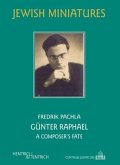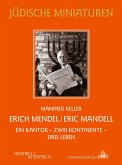Werner Sander (1902-1972) holds an unusual stance in the history of Jewish music. Not only did he live through two dictatorships-Nazism and GDR communism-but these outer political influences shaped his life and career as a musician. Born in Breslau, he trained to become a teacher for piano and voice; he initially also worked as music critic and choral conductor. Upon the Nazi rise to power he turned to Jewish music, a shift that would shape his identity as a musician forever. With his move to East Germany after the end of World War II, Sander continued his path as a synagogue musician, while pursuing his keen interest in conducting oratorios. Sander is chiefly remembered for having founded the still existing Leipziger Synagogalchor in 1962, and having shaped it as a concert choir exclusively devoted to Jewish music in its diverse nature. Tina Frühauf explores how Sander fought for the survival of synagogue music under the difficult conditions in the GDR.
Hinweis: Dieser Artikel kann nur an eine deutsche Lieferadresse ausgeliefert werden.
Hinweis: Dieser Artikel kann nur an eine deutsche Lieferadresse ausgeliefert werden.







